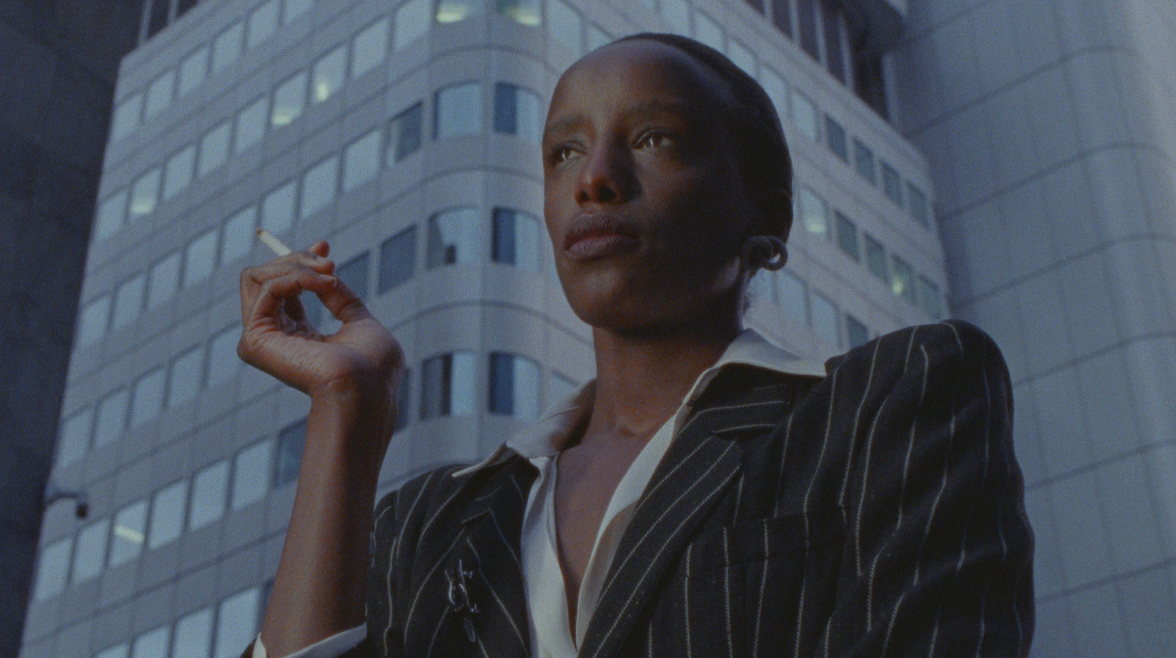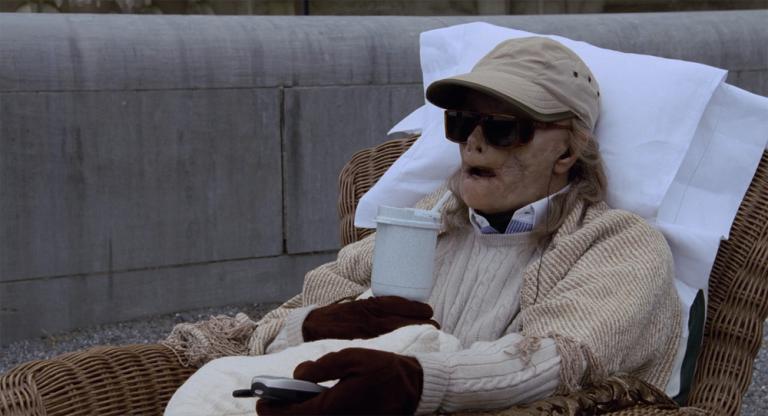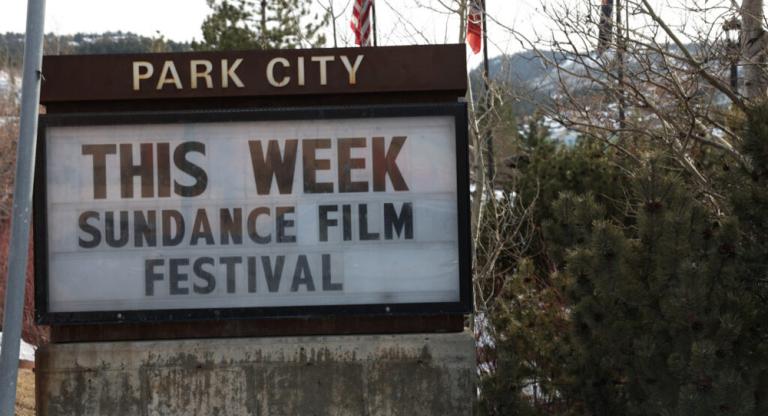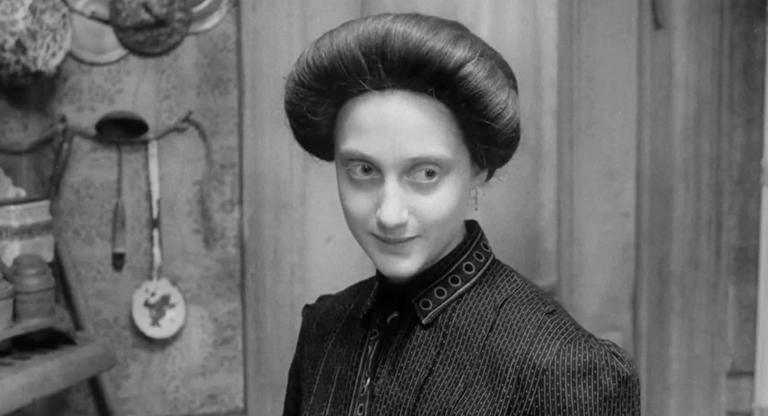Across a trilogy of shorts, the French-Lebanese filmmaker Valentin Noujaïm has traversed time, genres, and different cinematic modes to explore the push-and-pull between the marginal and the mainstream in Paris’s La Défense, a business district erected in the 1960s as part of France’s push to attract investment and centralize corporate activity outside of the city’s historic core. Constructed atop razed shantytowns and farmlands for the sake of neoliberal progression, the district is a symbol of erasure. As such, it functions as an ideal site for Noujaïm’s unique historical interventions, which favor personal testimonies, speculative flourishes, and minor histories over the grand narratives of Empire.
Pacific Club (2023) centers a titular nightclub once housed in a parking garage several stories below an office building. The space, pioneering for its introduction of soul and raï music to Parisian clubgoers in the 1980s, was one of the only clubs in the city to welcome Arabs, North African, and immigrant patrons. We learn much of this history through an interview with Azedine Benabdelmounen, a middle-aged French-Algerian man who frequented the club in his late teens. Benabdelmounen, captured as both melancholic and proud against the towering high rises and brutalist structures in La Défense, describes Le Pacific as both a space for community and a haven from state-sanctioned racism. Noujaïm sources similar sentiments from an online forum, which he imaginatively overlays onto a galactic 3D animation. The comments inject oral histories into the void, fondly reminiscing on the sociality of the club, while memorializing old friends that passed away too young against a backdrop of drugs, the AIDs epidemic, and the rise of the fascist National Front Party.
While Pacific Club looks to the past through, more or less, a documentary aesthetic, the next two entries in the trilogy are rooted in the present and look toward the future. To Exist Under Permanent Suspicion (2024) stars Kayije Kagame (of Alice Diop’s Saint Omer, 2022) as Claire, a Black businesswoman overseeing the design of a new skyscraper. What begins as the proud pursuit of a passion project (“I would live in it if I could,” she claims during a pitch to two unmoved white executives), quickly turns into a horror-tinged allegory about the soul-crushing rhythms of corporate work life. A similar sense of desperation characterizes Demons to Diamonds (2025), a sci-fi infused tale set in a world plagued by mysterious suicides that occur as daily leaps from the towers of La Défense. Both films embrace hybrid forms, deploying CC-TV imagery, iPhone footage, animation, and scripted sequences to frame nihilistic narratives that bounce between shadowy corporate agents of progress and anxious civilians under omniscient surveillance.
Noujaïm’s panoptic vision of contemporary life is most fully realized in a character played by French screen legend Denis Lavant in Demons. A Cronenbergian-figure, Lavant’s character appears underground, corporeally connected by a mass system of cables to a surface reality marked by alienation, paranoia, and bigotry. A symbol for the perils and potentials of our own constant state of interconnectedness, the character’s embodied links inspire an active finale. As he prophesizes, “I’m destroying the Pantheon, so that everything can begin anew,” the state structures above ground, rendered through 3D animations, begin to crack and crumble. For a world grown rotten with anti-monuments like La Défense, the only solution, Noujaïm concludes, is its ruination.
La Défense Trilogy screens tonight, September 22, at the Museum of Modern Art as part of the series “Modern Mondays.”



